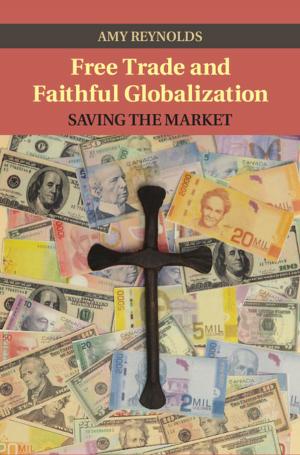Dictators and Democracy in African Development
The Political Economy of Good Governance in Nigeria
Nonfiction, Social & Cultural Studies, Political Science, Politics, History & Theory, Government| Author: | A. Carl LeVan | ISBN: | 9781316164105 |
| Publisher: | Cambridge University Press | Publication: | November 17, 2014 |
| Imprint: | Cambridge University Press | Language: | English |
| Author: | A. Carl LeVan |
| ISBN: | 9781316164105 |
| Publisher: | Cambridge University Press |
| Publication: | November 17, 2014 |
| Imprint: | Cambridge University Press |
| Language: | English |
What are the conditions for good governance in Africa, and why do many democracies still struggle with persistent poverty? Drawing on a historical study of Nigeria since independence, this book argues that the structure of the policy-making process explains variations in government performance better than other commonly cited factors, such as oil, colonialism, ethnic diversity, foreign debt, and dictatorships. The author links the political structure of the policy process to patterns of government performance over half a century to show that the key factor is not simply the status of the regime as a dictatorship or a democracy, but rather it is the structure of the policy-making process by which different policy demands are included or excluded. By identifying political actors with the leverage to prevent policy change and extract concessions, empirical tests demonstrate how these 'veto players' systematically affect the performance of two broad categories of public policy. This Madisonian dilemma has important implications for African countries struggling with the institutional trade-offs presented by different regimes.
What are the conditions for good governance in Africa, and why do many democracies still struggle with persistent poverty? Drawing on a historical study of Nigeria since independence, this book argues that the structure of the policy-making process explains variations in government performance better than other commonly cited factors, such as oil, colonialism, ethnic diversity, foreign debt, and dictatorships. The author links the political structure of the policy process to patterns of government performance over half a century to show that the key factor is not simply the status of the regime as a dictatorship or a democracy, but rather it is the structure of the policy-making process by which different policy demands are included or excluded. By identifying political actors with the leverage to prevent policy change and extract concessions, empirical tests demonstrate how these 'veto players' systematically affect the performance of two broad categories of public policy. This Madisonian dilemma has important implications for African countries struggling with the institutional trade-offs presented by different regimes.















